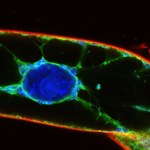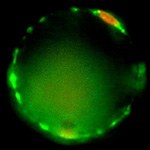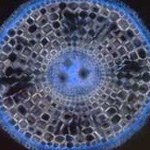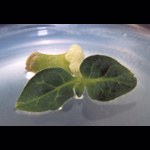Recent publications
Publications are listed HERE.
Research groups

Plant Cell Biology and Biotechnology
Dr Kateřina Schwarzerová's group investigates plant cytoskeleton at the molecular and cellular level. The research contributes to understanding the role of the cytoskeleton in plant morphogenesis and signalling. Dr Lukáš Fischer's group focuses on epigenetics: mainly the role of small RNAs in the regulation of gene expression and the impact of chromatin state on DNA break repair. Dr Jan Petrášek group is particularly focused on auxin transport and the role of the cytoskeleton in auxin-directed plant development.

Cell Morphogenesis
The group of Prof. Fatima Cvrčková and Prof. Viktor Žárský is focused predominantly on the molecular mechanisms of cell polarity. The group researches proteins and protein complexes involved in polarised exocytosis and organisation of the cytoskeleton (particularly the multiprotein complex Exocyst and the cytoskeleton-organising formin family). The group also investigates the signalling pathways coordinating cell polarity establishment. Part of the team works at the Institute of Experimental Botany.

Plant Ecophysiology
Prof. Jana Albrechtová's group (labs 206 and 207) investigates plants' physiological and structural responses to biotic and abiotic environmental factors in laboratory and field conditions. The research focuses on 1) Ecological physiology of plants and uses a wide range of microscopic, quantitative anatomical (stereological and image analysis), histochemical and biochemical methods, up to spectral analysis of foliage usable in remote sensing of the Earth and is led by Dr. Zuzana Lhotáková; 2) Mycorrhizal symbioses and other fungal associations of plant roots, their ecology and ecophysiology using a range of field research methods, molecular methods and bioinformatics under the supervision of Dr Petr Kohout.

Physiological Anatomy
The group of Aleš Soukup and Edita Tylová tries to explain and link the structural arrangement with the functional properties of the plant body. The internal organisation of plants reflects their strategy for survival in the real world and their ability to use environmental resources efficiently at the level of cells, tissues and whole organs. The internal structure of a plant is not rigid but changes during ontogeny and, due to considerable developmental plasticity, allows these sessile organisms to adapt to changing environmental conditions and external factors during life. Our interest focuses mainly on the usually hidden part of the plant - the root system, its development, function and interaction with the soil environment, efficient use of soil resources and resistance to stress from adverse conditions.

Plant Morphogenesis Regulatory Factors
The group of Dr. Hana Konrádová, Dr. Petra Mašková and Dr. Jan Ponert is interested in plant sugar metabolism connected with developmental changes and heavy metal, cold, drought stress etc. Further interest is focused on the developmental changes of plants transfected with allosteric mitotic aktivátor. The group also investigates the plant-fungi interaction in the life cycle of orchids. Along with traditional cultivation methods, the group contributes to the improvement of in vitro cultivation methods for plant explants.





















